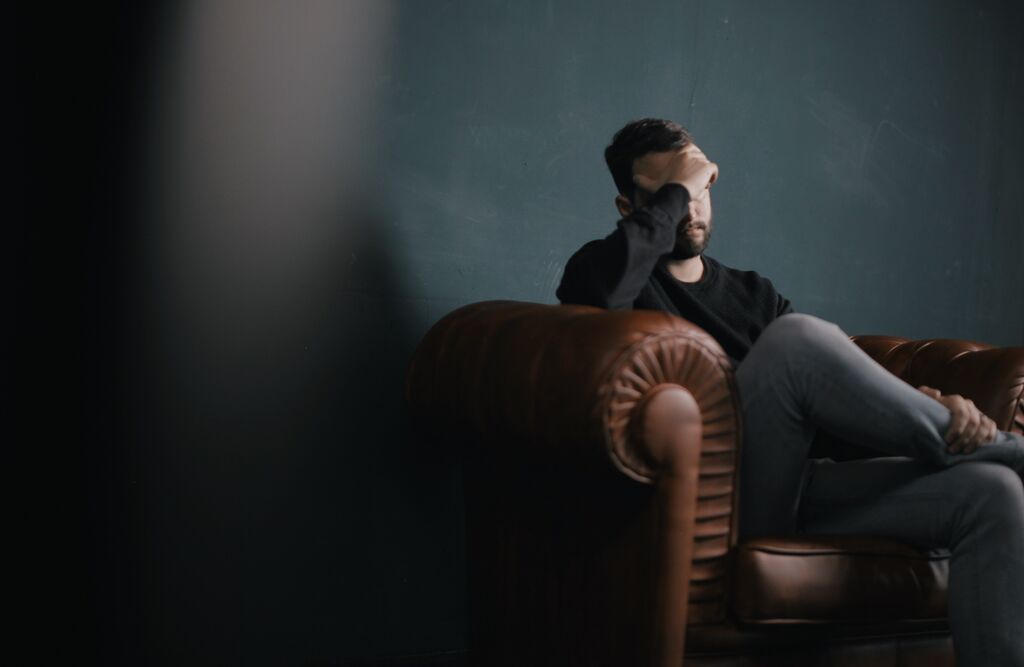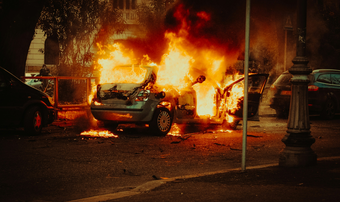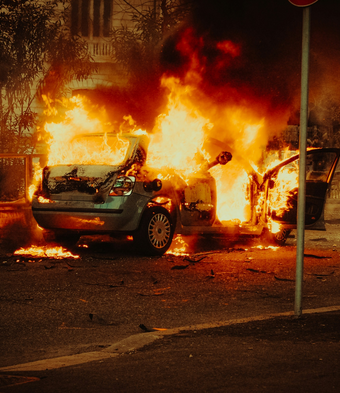CARE Fact Check: Conversion Therapy Debate

On Wednesday 6 December, a debate took place in Westminster Hall, with the following motion:
That this House has considered Government policy on conversion practices.
It was prompted by the Government’s failure to introduce legislation to ban conversion practices in the King’s Speech on 7 November. (Although draft legislation may well still be published).
For the record: CARE agrees that any ‘practices’, ‘treatments’ or ‘therapies’ that seek to force or coerce a person to change their sexual identity are wholly inappropriate. Such practices are largely covered by existing laws.
However, we are deeply concerned that the proposed ban risk infringing freedom of religion, conscience and thought more broadly with knock on effects for teachers, parents, children and some medical professionals.
The following is a fact check on 6 especially contentious and contestable claims made during the debate.
Claim: There should be no debate over banning conversion therapy
"We sometimes go wrong in this House at times like this. This is not a debate – it should never be a debate. It is a conversation at best.”
Response: this is an attempt to adopt a ‘moral majority’ position on the question of a conversion therapy ban. It frames the whole debate as if no-one could really be questioning whether a ban is needed.
But to suggest it is not really a debate is simply not true. Every legislative proposal should be properly debated, even when there is broad consensus. It is the job of parliamentarians to do just that. When it comes to a possible conversion therapy ban, there are legitimate questions that need to be answered. For example, how will the Government ensure any such ban does not infringe important freedoms?
So it is absolutely is a debate and proper, robust debate on policy proposals that could undermine basic freedoms is all the more important.
Claim: It is not complicated to pass conversion therapy legislation
A ban on conversion therapy is not woke, left wing, or for snowflakes – or whatever other bizarre term certain people opposed to it want to offer up this week. It is not complicated, as some have made it out to be.
Response: this is simply not true. One of the primary reasons it has taken so long to introduce a legislative ban is because it is very, very complicated. A few years go, a leading KC was asked to examine proposals for a conversion therapy ban. His conclusion was that a ban risked breaching key parts of the European Convention on Human Rights, which the UK is signed up to. Another legal opinion commissioned by Rev Ed Shaw from Living Out made the same point.
In fact, when different legislators around the world have pushed ahead with a broad-ban, without proper care an due diligence, the results for freedom have been chilling. Take the Australian state of Victoria as an example. It introduced a ban in 2021. Official guidance says the following:
“Practices that would be considered illegal under the Act include: a parent.. refusing to support their child’s request for medical treatment that will prevent physical changes from puberty that do not align with the child’s gender identity.”
“Examples of prohibited practices: a religious leader meeting one-to-one…and pressurizing [a member of the congregation] to suppress and ignore their feelings of same-sex attraction by practicing celibacy.”
Claim: we cannot change someone’s sexuality
People are entitled to their own opinions; however, they are not entitled to their own facts. Underpinning this conversation is the fact that conversion cannot be done: we cannot change someone’s sexuality or gender identity.
Response: let's be really clear about this. Any attempt to use force or coercion to change someone's sexuality is not only wrong, it it immoral and evil. But it is the use of the word ‘conversion’ that is especially important. As Christians, this word is fundamental to our faith. To quote from 1 Corinthians 6: 11: “And that is what some of you were. But you were washed, you were sanctified, you were justified in the name of the Lord Jesus Christ and by the Spirit of our God.”
Conversion means a radical, deep, permanent, supernatural change. To quote Jesus, it means being ‘born again’ by the Spirit. And the key point is that it is not forced, or coerced. Anyone who says so fundamentally misunderstands God, His power, our wills and the way Christianity works. Anyone who is genuinely converted willingly embraces Jesus as He is offered, freely, in the gospel.
In practice, there are some Christians who once lived a gay lifestyle who are now in a biblical marriage. Rosaria Butterfield would be one example. For other same-sex attracted Christians who believe the Bible, their conversion means they faithfully live a celibate lifestyle out of obedience to God.
The point is for some, fundamental change in terms of sexual behaviour, or 'conversion' does happen. For others, it does not. But all experience conversion as God’s powerful work in their life. So, conversion CAN be done and far from being something to run from, this is the epicentre of the good news of Christianity.
Claim: if we don’t ban conversion therapy, young gay people will be damaged or even die
If we continue on the current path, they will only grow into adults who are severely damaged or, in some cases, dead. They will be dead because the Government did not change something from wrong to right with a flick of a pen on a piece of legislation.
Response: wherever genuinely harmful medical and therapeutic practices have taken place, whether in a church setting or not, there is a need for genuine repentance. Such practices are clearly wrong and thankfully, largely covered by existing legislation.
However, the troubling thing about this claim is that it rests on very shaky and questionable evidence.
In a leaked memo, when Boris Johnson was PM, the UK government admitted the 2017 survey did not show what many had claimed. Firstly, it didn’t use a representative sample. This means it is impossible to know whether it properly represents wider society, or just the experiences of a limited cohort.
But there was also no attempt in the survey to define conversion therapy. This means we cannot know what it was people were claiming as ‘conversion therapy’. Those who said they’d experienced it may well have experienced practices that already illegal.
The survey also failed to ask when the experiences of conversion therapy had taken place. This means some might have cited experiences that were legal 50 years ago, but are, rightly, now illegal.
The case for a broad conversion therapy ban rests of highly questionable evidence. Policy makers must take this into account.
Claim: a conversion practices ban would not criminalise parents
It was disappointing to hear some of the accusations from the Government that a ban would inevitably criminalise parents talking to their children. This is a ludicrous suggestion.
Response: far from being ludicrous, this is what a broad ban would entail. It would run the risk of criminalising parents, perhaps especially Christian parents, who want to teach their children what the Bible says about identity and human sexuality.
Article 8 of the European Convention on Human Rights extends to family life and protects parents from disproportionate state interference. Article 2 of Protocol 1 of the ECHR also says parents have a right to ensure the education of their children in conformity with their own religious and philosophical convictions.
A legal opinion commissioned by Ed Shaw suggested the government and campaigners have failed to justify limiting this protected right. There are additional legal opinions from experienced and respected KC's which say the same thing.
Claim: a conversion practices ban would not cover quiet conversations and friendships
A ban would not cover quiet conversations and friendships contrary to the claims of the right hon. Member.
Response: well, this depends entirely on the sort of ban that might be introduced. If a broad ban is introduced, then evidence from Victoria State in Australia suggests quiet conversations would indeed be covered.
Plus, you can presume that there would need to be clear guidance for the authorities, especially the police and given the track record the police have for arresting people for silent prayer near abortion clinics, it’s not presumptuous to presume a heavy handed approach to tackling quiet conversations.






